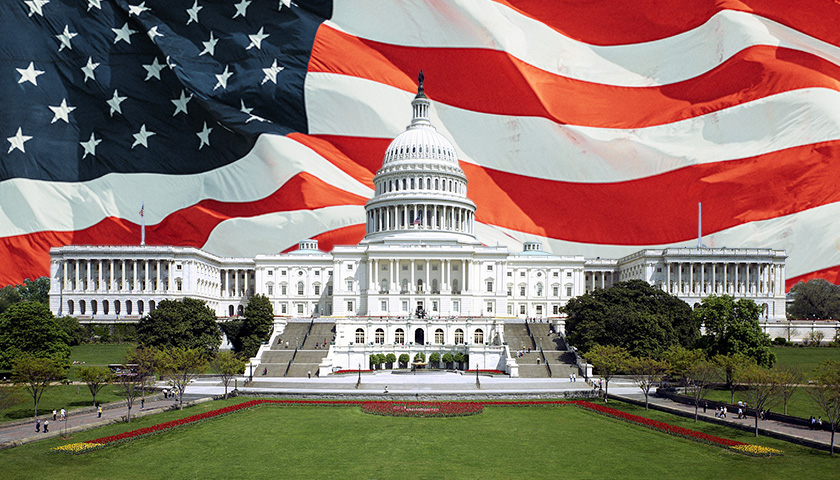by Samuel Gregg
I’ve often thought there is something providential about the Declaration of Independence being drafted and promulgated throughout the American Colonies the same year that Adam Smith’s book “The Wealth of Nations” was published.
After all, both texts were revolutionary, and both were fundamentally concerned with protecting and promoting liberty.
The Declaration of Independence was very much concerned with political liberty, while “The Wealth of Nations” was focused on economic freedom. But, as was well understood at the time, economic liberty and political freedom not only reinforce each other; the absence of one tends to weaken the other.
It’s not coincidental, for example, that the declaration lists several ways the Continental Congress believed Britain had violated the colonists’ economic liberties.
Most of us know about the charge of taxation without representation. But we should remember that the declaration also accused King George III and the British Parliament of “cutting off our Trade with all parts of the world.”
Here, the declaration refers to what were known as the Coercive Acts, one of which was the Boston Port Act. Passed by the British Parliament on March 31, 1774, this measure closed Boston Harbor to imports and forbade exports following the Boston Tea Party in 1773.
That famous event responded to the British Parliament’s effort to provide the East India Co. with tax privileges that made it harder for colonial importers in the competition to bring tea to the colonies.
It’s important to recognize that American colonists already were trading extensively through the world by the 1760s. Moreover, they were doing so far beyond the confines of Britain’s extensive world empire. Rather than being economically closed to the rest of the world, American merchants were trading as far abroad as China and Central and South America.
Not surprisingly, American merchants saw restrictions on their freedom to trade as economically costly as well as infringing on what they regarded as a natural right to engage in economic exchanges where and with whom they wanted.
In a way, the American colonists were doing what Adam Smith thought all people should be free to do: to trade within and across borders, free of undue constraints by government and in economies free of privileges doled out by governments to those who enjoyed connections to political leaders and legislators.
In many respects, Smith’s “The Wealth of Nations” is a devastating critique of the attempts by governments to manage trade and create wealth via tariffs, subsidies, and special tax deals such as that accorded to the East India Co. Smith pointed out, for example, that efforts to protect domestic industries didn’t increase a country’s total output.
No regulation, Smith stated, “can increase the quantity of industry in any country beyond what its capital can maintain.”
Instead, regulation diverted part of a country’s capital “into a direction into which it might not otherwise have gone.”
But, Smith added, “it was by no means certain that this artificial direction is likely to be more advantageous to the society than that into which it would have gone of its own accord.”
These words were echoed by James Madison 13 years later during the first congressional debates about tariffs.
“It is also a truth,” Madison observed, “that if industry and labor are left to take their own course, they will generally be directed to those objects which are the most productive, and this is a more certain and direct manner than the wisdom of the most enlightened legislature could point out.”
Madison and Smith are underlining here the folly—not to mention the sheer hubris—of politicians and technocrats assuming that they can somehow know everything they would need to know if they were to determine the most optimal allocation of scarce resources of capital and labor.
That is core to understanding why Smith and Madison put their faith in the liberty of entrepreneurs and businesses to make their own decisions about what to create, where and how to invest, and with whom they wanted to trade.
Today, America has drifted far from these insights, as well as its commitment to economic liberty. According to The Heritage Foundation’s 2023 Index of Economic Freedom, economic liberty has fallen in America since 2007. Indeed, it’s at the lowest level since Heritage first published the index in 1995.
The Index of Economic Freedom also states that the three-year average for government spending is 41.1% of America’s gross domestic product. That is basically the same percentage as many Western European countries, some of whom, it turns out, are economically freer than the United States.
The Fourth of July is a reason for Americans to celebrate many things, but also an occasion to ask ourselves how well we measure up to the aspirations of the Declaration of Independence.
Plainly, when it comes to economic liberty, we have much work to do.
– – –
Samuel Gregg is a distinguished fellow in political economy at the American Institute for Economic Research and a visiting scholar with the B. Kenneth Simon Center for American Studies at The Heritage Foundation.
Photo “U.S. Capitol” by GPA Photo Archive. Background Photo “U.S. Flag” by AlteredSnaps.





